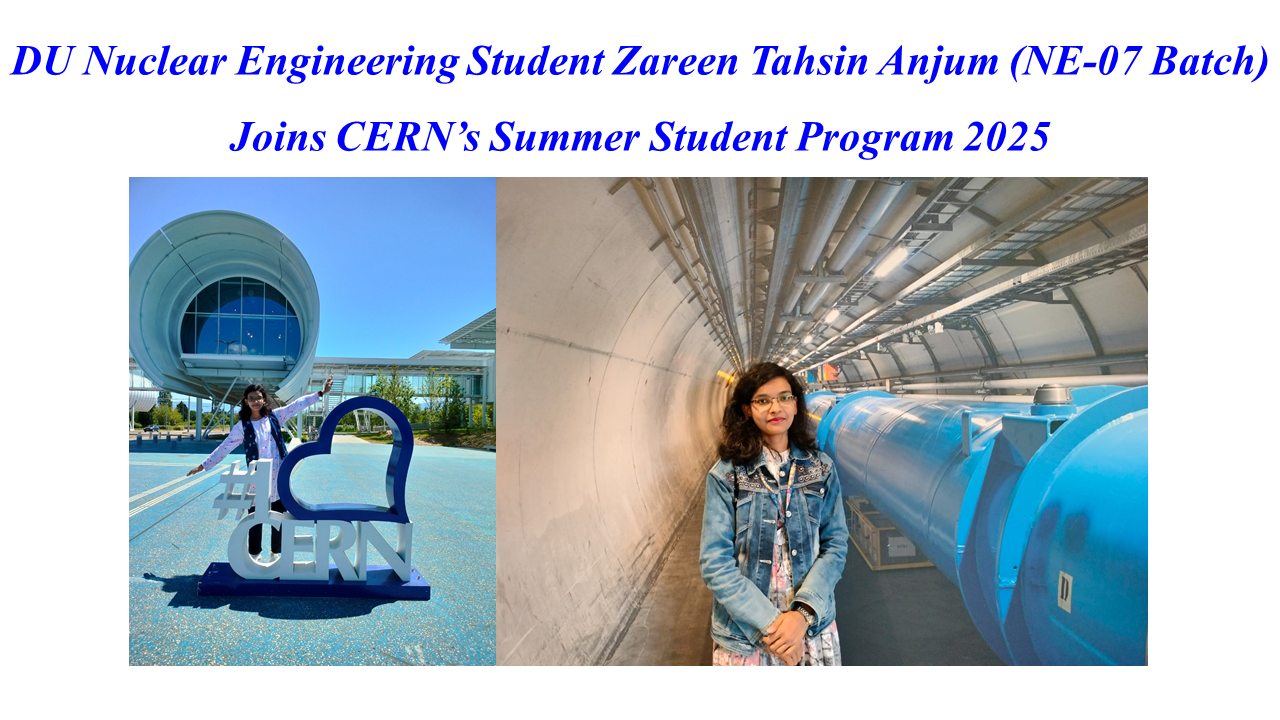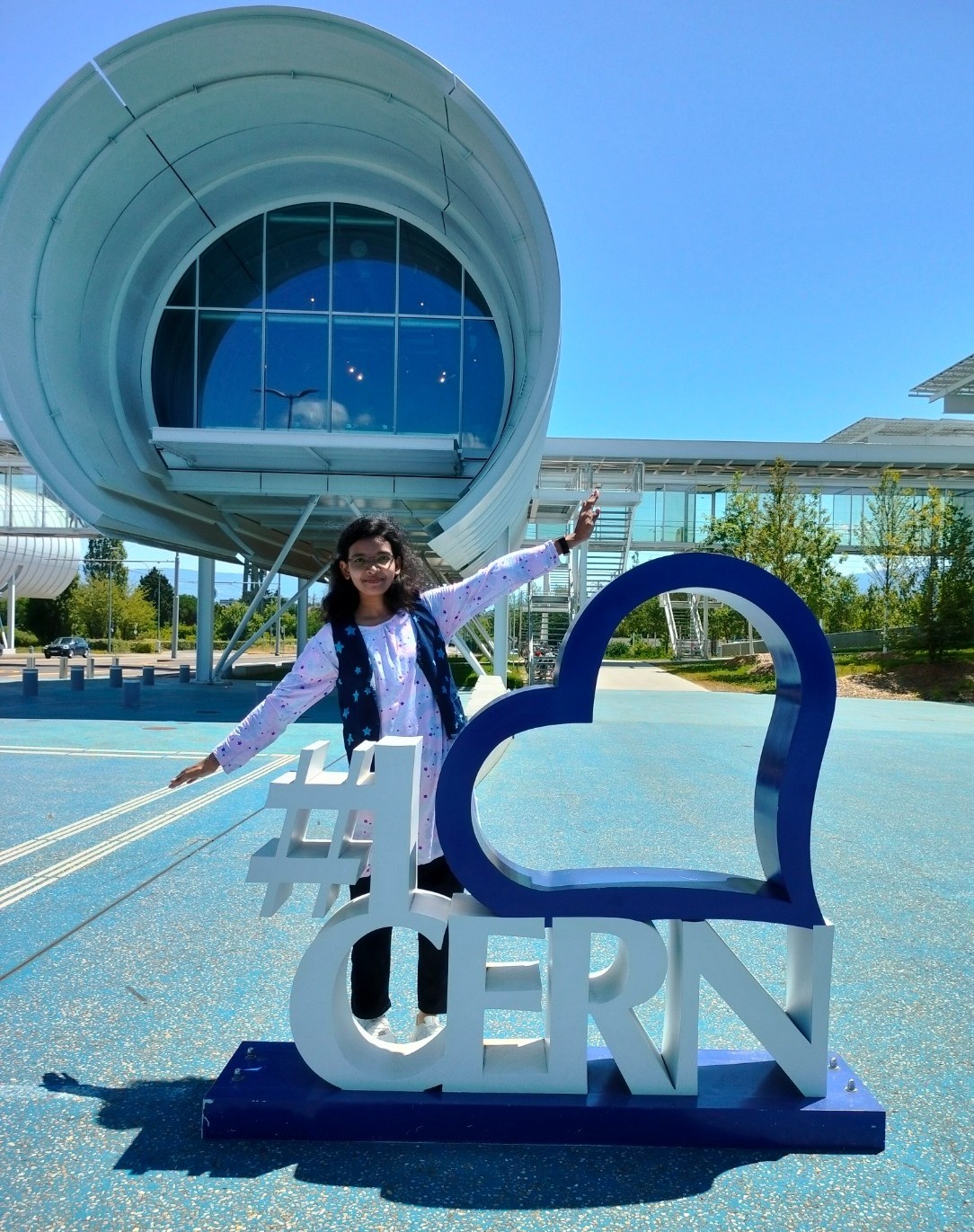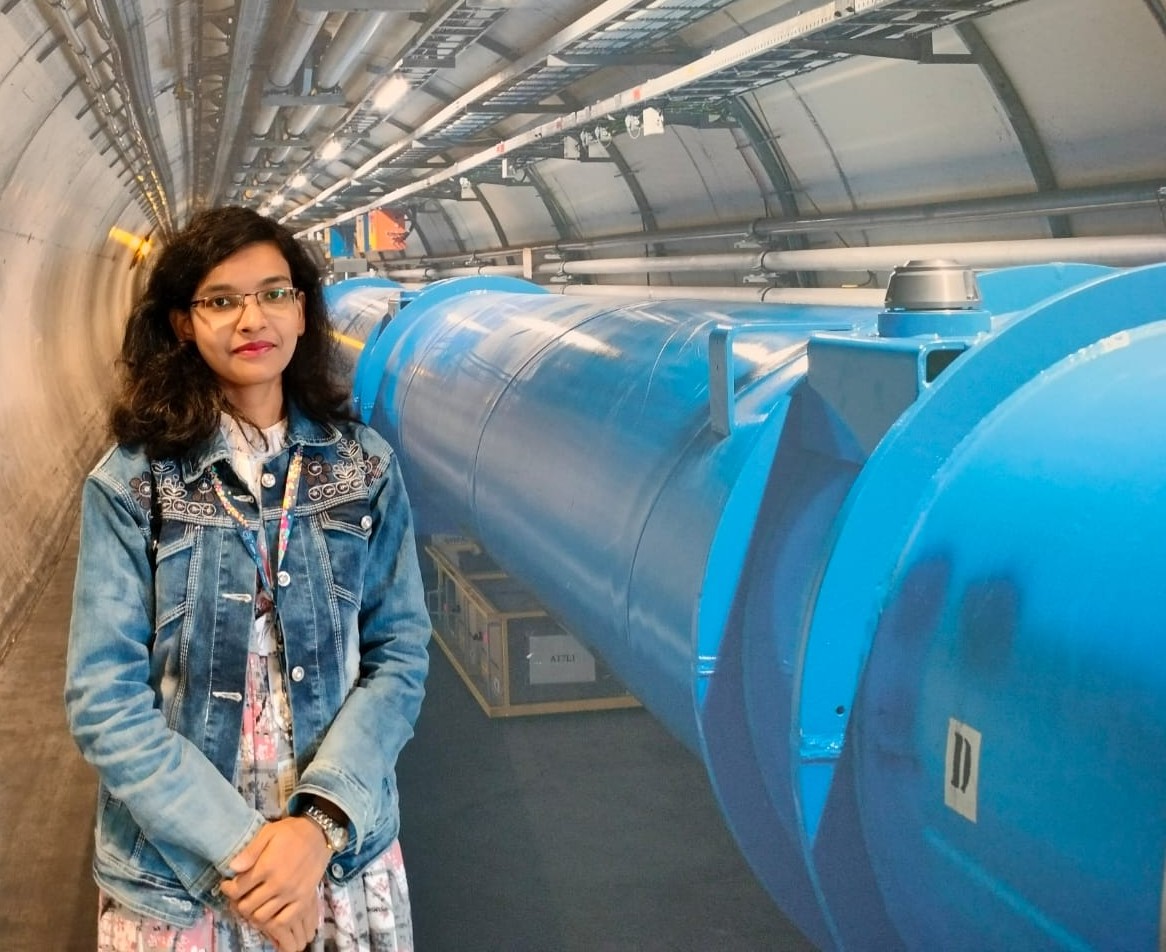
DU Nuclear Engineering Student Zareen Tahsin Anjum (NE-07 Batch) Joins CERN’s Summer Student Program 2025
Recently, Zareen Tahsin Anjum , a postgraduate student (B.Sc. 07th Batch & M.Sc. 12th Batch) in the Department of Nuclear Engineering at the University of Dhaka, has been awarded a remarkable opportunity to participate in the ‘CERN Summer Student Program 2025’. CERN ("Conseil européen pour la Recherche Nucléaire")-The European Organisation for Nuclear Research, the world’s largest scientific facility, located in Geneva, Switzerland.

Each year, CERN offers highly competitive internship opportunities in various projects to students from both member and non-member states. Every year, out of over 10,000 students from around the world, CERN selects around 300 individuals. This year, Zareen from Bangladesh has earned this opportunity.
The Higgs Boson particle, popularly known as the “God Particle,” was discovered in 2012 through the Large Hadron Collider (LHC), a 27-kilometer circular accelerator located underground at the CERN facility. She is assigned to the ATLAS detector, one of the biggest detectors at CERN and a key player (along with CMS) in the discovery of the Higgs boson. Zareen is currently involved in the 'Tau Trigger Project' within the ATLAS experiment, which is connected to the search for Di-Higgs boson production. This phenomenon can provide deeper insight into the Higgs mechanism and the fundamental structure of matter.
It is believed that the Higgs Boson particle, also known as the God Particle, gives mass to all other particles, thereby laying the foundation for the matter that forms us and everything we observe in the universe.
It is worth noting that the name of the Higgs Boson, also known as the God Particle, is tied to Bengali scientist Satyendra Nath Bose, a former professor in the Department of Physics at the University of Dhaka.
